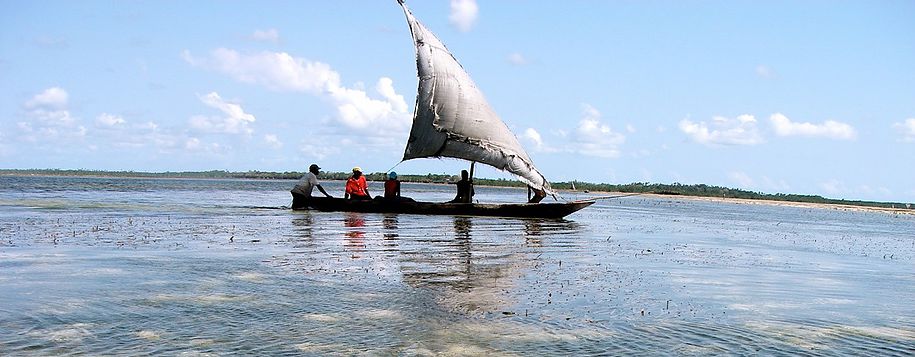Fijian Support Strengthens Community-led Marine Conservation
January 01, 2016
In Madagascar, GEF-DSCP partner organization Blue Ventures (Fisher knowledge, awareness and behaviour change for the conservation of dugongs and seagrass using the Mihari network of Locally Managed Marine Areas in Madagascar) is supporting the MIHARI network of locally managed marine protected areas (LMMAs) to ensure the long-term sustainability of community-led marine conservation.

In October 2015, more than 100 LMMA practitioners from communities around Madagascar’s coast gathered with NGO partners and government officials on Madagascar’s remote northeast coast for a national forum.
The meeting, a core activity of MIHARI, Madagascar’s LMMA network, provided an important opportunity for community leaders to share experiences, successes and challenges of community-based fisheries management and conservation, as well as engage with national policy makers and get their voices heard.
The forum was hosted by LMMA communities in Mananara, in the Antongil Bay from 12-16 October and was supported by a range of NGOs. The five-day programme encompassed presentations by delegates, field visits to local fishing communities, as well as discussions exploring both progress to date and priorities to support the continued development of the network. Community leaders also had the opportunity to quiz policy makers and officials from three ministries on the issues they face on a day to day basis.
Participants were joined by visitors from the International LMMA Network, headquartered in Suva, Fiji. The Pacific region, the birthplace of the LMMA concept has been a source of inspiration for the LMMA movement in Madagascar. Alifereti Tawake, a community leader from Fiji, who sits on the LMMA Network, council shared with MIHARI members his experiences and lessons learned in building a successful network. Hugh Govan drew on the network’s experience in a range of countries to provide important contributions on promoting local management in national policy and legislation in Madagascar to secure the rights of traditional fishers.
Alifereti said: “Meeting Madagascar’s LMMA leaders has been fascinating for us. Fijian communities face many of the same challenges as Malagasy fishing communities. We hope that by building links with the LMMA communities in Madagascar and sharing what we have learned, we can help them overcome these by building a strong network with communities at its heart.”
Outside of the organised sessions during the forum, there was important value in informal discussions. Roger Samba, President of the Velondriake LMMA said: “I will be bringing many messages from this forum back to my community. In particular I’ll be telling them about what I learned from Alifereti [from Fiji] about making LMMAs sustainable in the long run, as this is my priority for Velondriake. I’m also very glad to have been able to have a long discussion with the representative from the [national fisheries surveillance unit]. This contact will be very helpful in the future for managing our fisheries.”
Additional delegates included a representative from the Madagascar Public Health Education Network, which works to support the integration of health education and services with community-based natural resource management, alternative livelihood and biodiversity conservation initiatives.
The MIHARI network of LMMAs in Madagascar will be supported as part of GEF project MG2.
The MIHARI network is made up of over 100 community associations and many national and international NGOs. The forum was organised with important contributions from all MIHARI members. Blue Ventures currently houses the national MIHARI network coordinator. Particular thanks go to the communities of the Antongil Bay and the Wildlife Conservation Society for their work to prepare and host the forum.